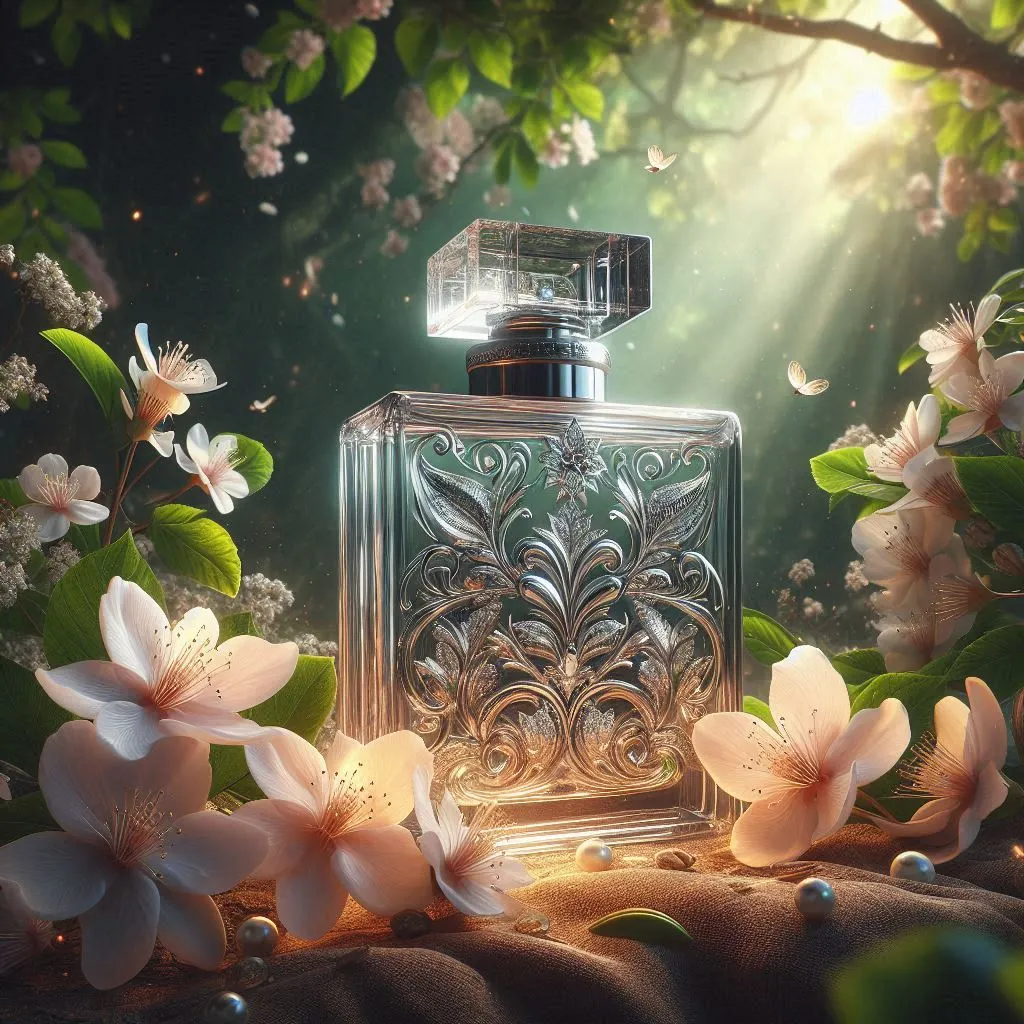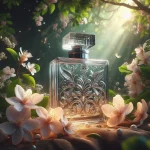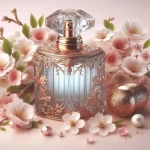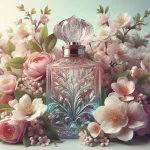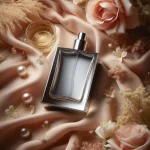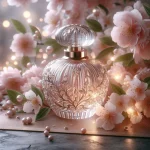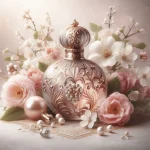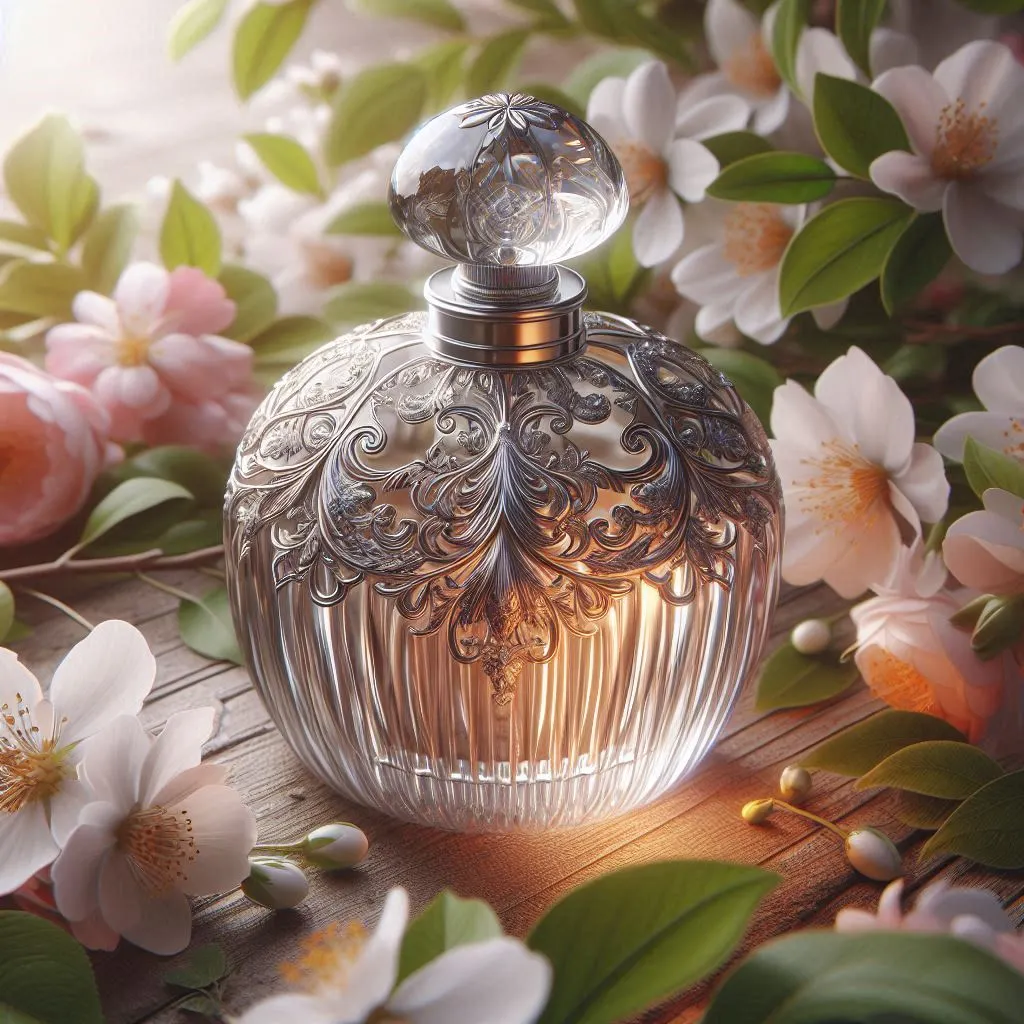
Table of Contents
Introduction
Let’s talk perfume – it’s not just about smelling nice, it’s about who we are. Think about it: for thousands of years, from Egyptian temples to Greek bathhouses, people have been obsessed with scent. Kings and queens would trade fortunes for a single vial of the good stuff, and today? Well, now we all get to play royalty with shelves full of fancy bottles.
But here’s the thing – with so many perfumes out there now (seriously, walk into any department store and it’s overwhelming!), people have questions. Like:
- “Wait, does this stuff actually go bad?”
- “Why does my favorite scent disappear by lunchtime?”
- “And what’s the deal with those ‘pheromone’ perfumes – do they actually work or is that just marketing?”
Don’t worry, we’re going to break it all down. By the time we’re done, you’ll be picking perfumes like a pro and making that scent last all day. Because let’s face it – in a world where first impressions matter, your signature scent might be the most powerful accessory in your wardrobe.
1. Does Perfume Expire?
That fancy bottle won’t last forever – surprise! Perfumes are made with delicate ingredients that break down gradually. How fast? Depends on what’s inside, the formula, and where you store it. Think of it like your favorite skincare – it’s got an expiration date. Knowing this helps you use your collection smarter.
Perfume Shelf Life Based on Type
The type of fragrance you choose plays a significant role in how long it lasts. Each perfume type is formulated with varying concentrations of essential oils, alcohol, and other ingredients, affecting its longevity and how quickly it will expire.
| Perfume Type | Average Shelf Life | Notes |
|---|---|---|
| Parfum (Pure Perfume) | 5-10 years | Contains the highest concentration of essential oils and little to no alcohol, making it the longest-lasting type. It is the most concentrated and richest in fragrance. |
| Eau de Parfum (EDP) | 4-7 years | Moderate alcohol content; EDP offers a balance of fragrance intensity and longevity, typically lasting between 6 to 8 hours. |
| Eau de Toilette (EDT) | 3-5 years | Lighter scent and more alcohol, which causes the fragrance to evaporate quicker. It is refreshing but does not last as long. |
| Eau de Cologne (EDC) | 2-4 years | Highest alcohol content, which causes the fragrance to evaporate very quickly. Often used for a fresh burst of fragrance that doesn’t last long. |
| Aftershave | 2-3 years | Low concentration of fragrance; primarily used to soothe the skin after shaving, and not designed for long-lasting wear. |
Signs That Your Perfume Has Expired
Perfumes do not come with expiration dates, but there are subtle signs that can indicate your fragrance has lost its potency. When a perfume expires, you may notice several changes:
- Change in scent: The most obvious sign is a noticeable alteration in the fragrance. An aged perfume may smell sour, musty, or overly sharp compared to its original aroma.
- Color change: Perfumes are often clear or light in color when fresh. If your perfume starts turning yellow, brown, or darker in color, it may have begun to oxidize or degrade.
- Separation of ingredients: In some cases, you may notice a cloudy appearance or particles floating in the bottle. This happens when the ingredients no longer blend together properly.
How to Store Perfume to Extend Its Life
Where you stash your perfume bottles really matters if you want that scent to stay strong. Try these storage tricks:
- Avoid direct sunlight and heat: Sunlight and heat are enemies to your perfume. UV rays can break down the delicate components in the fragrance, leading to deterioration. Always store your perfume in a cool, dark place, such as a closet or drawer.
- Keep it in the original packaging: The original box or packaging not only serves as a protective barrier against light but can also prevent temperature fluctuations that may affect the perfume.
- Seal the bottle tightly: When you’re not using your perfume, make sure the cap is securely closed. This will prevent air from entering the bottle, which can lead to oxidation and spoilage of the fragrance.
For a detailed study on perfume expiration, check the Fragrance Foundation Study on Perfume Expiry.
2. How Long Does Perfume Last?
The longevity of a perfume depends on several factors, including its type, your skin’s unique chemistry, and environmental conditions. Some perfumes, particularly those with higher concentrations of oils, can last all day, while lighter fragrances may fade after a few hours.
Perfume Longevity by Type
Different perfume formulations have different lasting powers. Here’s a look at how long each type generally lasts:
| Perfume Type | Longevity on Skin | Notes |
|---|---|---|
| Parfum | 8-12 hours | Due to the high concentration of essential oils, parfum has the longest-lasting scent. It’s perfect for evening wear or special occasions. |
| Eau de Parfum (EDP) | 6-8 hours | This is a balanced fragrance that combines strong intensity and lasting power, making it suitable for everyday wear and formal settings. |
| Eau de Toilette (EDT) | 4-6 hours | Lighter and more refreshing than EDP, EDT works well for casual daily use but fades faster, requiring reapplication throughout the day. |
| Eau de Cologne (EDC) | 2-4 hours | With a high alcohol content, EDC offers a light burst of fragrance but doesn’t linger long, making it more of a refreshing splash than a long-lasting scent. |
| Body Mist | 1-3 hours | Body mists are extremely light and often used for a quick refresh. However, they don’t have the longevity or intensity of other types of perfume. |
Factors Affecting Perfume Longevity
- Skin Type: People with oily skin typically find that perfumes last longer on their skin. Dry skin can cause the fragrance to fade faster, as there’s less oil to hold the fragrance in place.
- Environment: Humidity, sweat, and heat can all cause perfume to dissipate more quickly. In hot weather, it’s especially important to apply perfume in a cool, shaded area and avoid over-spraying.
- Application Method: Where and how you apply your perfume can make a big difference in how long it lasts. More on this in the next section.
3. How to Make Perfume Last Longer
While perfume’s longevity is partly determined by its formulation, there are several things you can do to maximize its staying power.
Best Practices for Long-Lasting Fragrance
- Moisturize your skin before applying perfume: Perfume clings to moisturized skin better than dry skin. Apply a scent-free body lotion or matching scented lotion before spraying your fragrance. This will help the perfume adhere longer.
- Target pulse points: These areas are where the blood vessels are closest to the skin, generating heat and helping to diffuse the fragrance. The best pulse points are your wrists, neck, inner elbows, and behind the ears.
- Avoid rubbing your wrists together: While it may seem natural to rub your wrists after applying perfume, doing so can break down the fragrance molecules, making the scent fade faster.
- Layer your fragrance: Layering your fragrance with matching scented products (such as body wash, body lotion, and deodorant) helps to create a longer-lasting fragrance experience.
- Spray on clothes and hair: Clothes and hair hold scent longer than skin. However, avoid spraying directly onto your hair to prevent alcohol from drying it out. Instead, spray on a hairbrush and run it through your hair for a lasting effect.
For further tips on fragrance retention, refer to the Dermatology Study on Fragrance Retention.
4. Does Pheromone Perfume Work?
Pheromone perfumes are designed to enhance attraction by mimicking the natural chemical signals (pheromones) that humans and animals produce. These pheromones are believed to subconsciously influence others’ perceptions of attraction and desirability. But does the science back this up?
Scientific Findings on Pheromone Perfumes
Pheromone perfumes are a subject of much debate within the scientific community. Here are the findings from a few major studies:
| Study | Conclusion |
|---|---|
| 2002 Study by Cutler et al. | Found some evidence suggesting pheromones may influence perceived attractiveness, particularly in certain social contexts. |
| 2007 University of California Study | No definitive proof that pheromone perfumes have a measurable effect on human attraction or behavior. |
| 2015 Harvard Research | Found that the placebo effect might play a significant role in the perception of pheromone effectiveness. |
Though many users report success in enhancing their allure with pheromone perfumes, the results are subjective. Additional research is needed to fully understand their impact.
5. What is Pheromone Perfume?
So these perfumes? They’ve got either lab-made or natural stuff in them that’s supposed to get people’s attention, if you know what I mean. Basically, they’re trying to copy those natural chemical signals we all give off anyway. The main things you’ll usually find in these love potion perfumes are:
- Androstenone: Associated with male dominance and attraction.
- Androstenol: Linked to approachability and warmth.
- Copulins: A type of pheromone found in women’s natural scent, believed to increase male attraction.
Popular brands of pheromone perfumes include Pherazone, Nexus Pheromones, and RawChemistry Pheromone Cologne.
For more information on how pheromones work, check the Scientific Study on Human Pheromones.
6. Where to Spray Perfume for Best Results
The right application technique can significantly improve the projection and longevity of your fragrance.
Best Areas to Apply Perfume
| Area | Effectiveness | Notes |
|---|---|---|
| Neck & Behind Ears | High | These areas radiate scent effectively, and the fragrance lasts longer. |
| Wrists | Medium | Be careful not to rub them together, as it may alter the fragrance. |
| Inner Elbows | Medium | Excellent for a subtle and lingering scent. |
| Hair | High | Hair holds fragrance for hours, but avoid alcohol-based sprays to prevent dryness. |
| Clothes | High | Fabric retains scent for longer, though be cautious of potential staining. |
Pro Tip: To help your scent last longer in your hair, lightly spray a small amount of perfume on a hairbrush and run it through your hair. This way, you’ll carry the scent with you all day without damaging your hair.
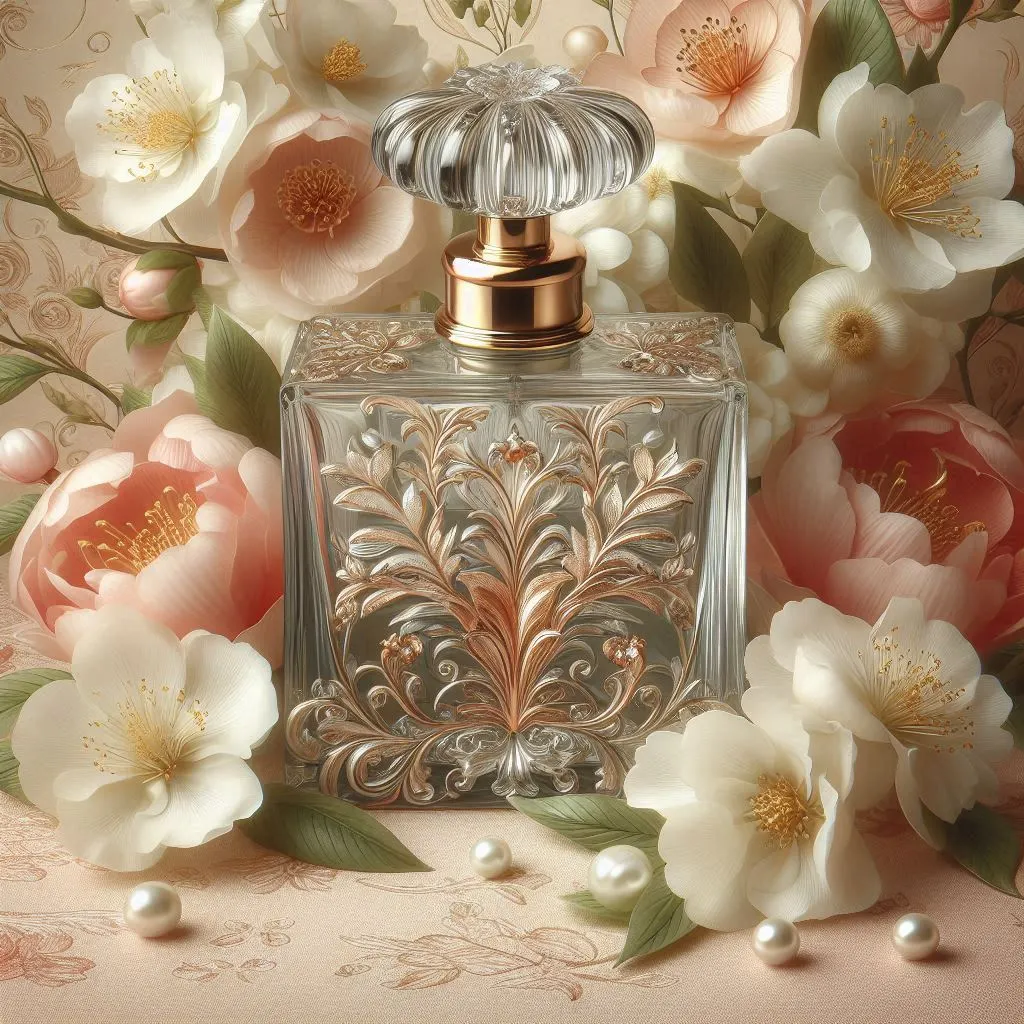
Conclusion
Let’s be real – perfume isn’t just about smelling nice. It’s part of looking sharp, showing off your personality, and making an impression. When you know how perfumes are crafted, how they change over time, and where to spritz them, you’ll get way more from your collection.
Those “pheromone” perfumes? Scientists are still arguing about them. But classic scents? They’ve been making life better forever. Whether you want an everyday go-to or that perfect special occasion fragrance, these tips will help you pick and wear perfume like a pro.
For additional insights, refer to the studies and resources cited throughout this guide, and start experimenting with the art of fragrance today.
Recommended Articles:
- Top 10 Most Handsome Men in the World 2025🌟
- Best Perfume for Women Top Picks for Every Style 2025
- Amazon Best Sellers in Skin Care Products Top 10 2025
- Perfume: Everything You Need to Know 2025
- Burberry Her Perfume: A Deep Dive 2025
- Ariana Grande Perfume: A Complete Guide 2025
- YSL Perfume: A Legacy of Luxury and Elegance 2025
- Sol de Janeiro Perfume: A Luxurious Fragrance 2025
- Billie Eilish Perfume 2025 In-Depth Guide
- Delina Perfume: A Comprehensive Guide 2025
- Kayali Perfume 2025 In-Depth Guide
- Miss Dior Perfume 2025 In-Depth Guide
- Valentino Perfume 2025 In-Depth Guide
- How to Increase Charisma: Women’s Edition 2025
- Mouse Pretty Makeup 2025 In-Depth Guide
- Wedding Makeup Looks 2025 In-Depth Guide
- 80s Makeup Looks 2025 In-Depth Guide
- 100 Cute Makeup Looks 2025 In-Depth Guide
- French Tip Nails 2025 In-Depth Guide
💬 Why Tip? It’s Not Just Money — It’s Motivation ❤️
| 😊 What You Got | 🎁 What I Get | 🔗 What You Can Do |
|---|---|---|
| ✔️ A smile or laugh | ✔️ A reason to keep creating | 👉 Buy me a coffee ☕️ |
| ✔️ Useful tips, insights, or ideas | ✔️ Proof that this content helps | 👉 Click the support button 💸 |
| ✔️ Fun, relatable content | ✔️ Motivation to go deeper & better | 👉 Leave a tip + kind feedback 🙌 |
| ✔️ Ad-free reading experience | ✔️ A little financial breathing room | 👉 $1 isn’t too little, $10 isn’t too much 🎉 |
| ✔️ A sense of connection | ✔️ The joy of being seen and supported | 👉 Let me know you’re out there 👀 |
❤️ If you made it this far, maybe that’s your sign to support? Every tip matters!

